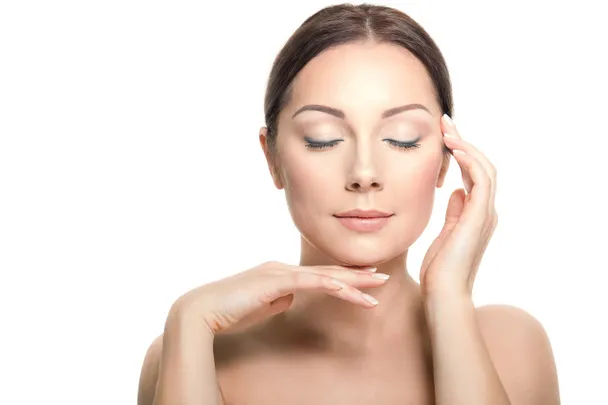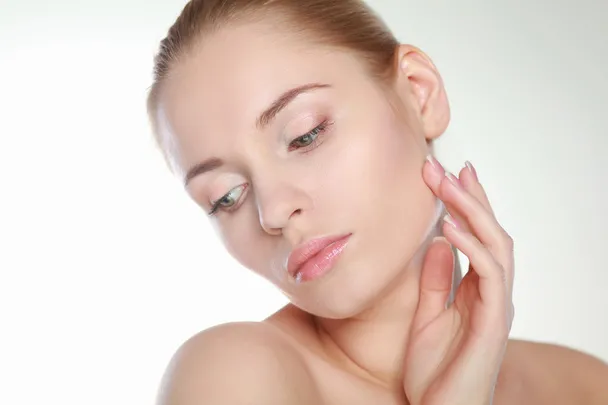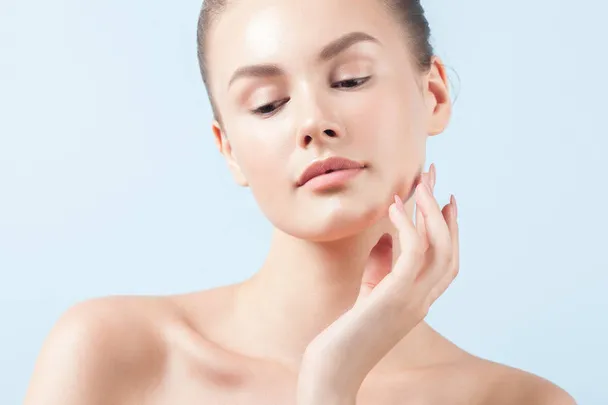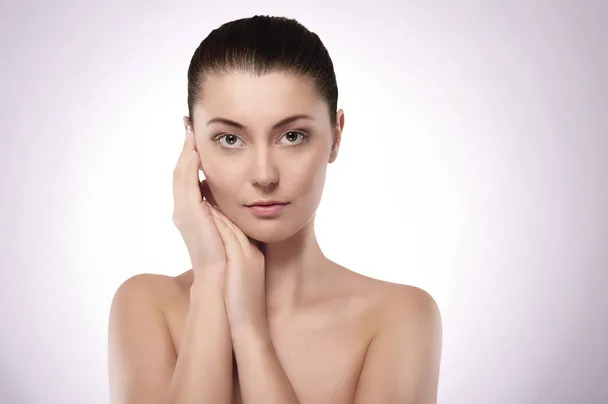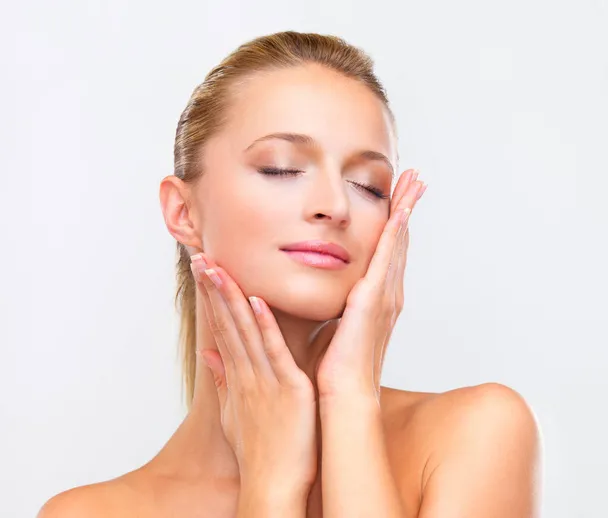Antioxidants:
Antioxidants are the superheroes of skincare, combating the villains known as free radicals that threaten our skin’s health and vitality. Free radicals are unstable molecules generated by factors like UV radiation, pollution, and stress. Left unchecked, they wreak havoc on our skin, causing premature aging, inflammation, and a host of other concerns. Fortunately, antioxidants swoop in to save the day, neutralizing free radicals and protecting our skin from harm.
Among the most potent antioxidants are vitamins C and E, green tea extract, and resveratrol. These powerhouse ingredients are commonly found in skincare products, where they work tirelessly to defend our skin from environmental aggressors. Vitamin C, in particular, is celebrated for its ability to brighten the complexion, fade dark spots, and promote collagen production, resulting in smoother, more youthful-looking skin.
Meanwhile, vitamin E provides essential nourishment and hydration, while green tea extract boasts anti-inflammatory properties that soothe and calm irritated skin. Resveratrol, derived from grapes, offers a potent dose of antioxidants that combat oxidative stress and protect against UV damage.
Hyaluronic Acid:
In the quest for radiant, youthful skin, few ingredients hold as much promise as hyaluronic acid. This superstar humectant boasts an impressive ability to attract and retain moisture, making it a must-have in any skincare regimen.
Hyaluronic acid occurs naturally in the body, particularly in the skin, where it plays a crucial role in maintaining hydration and suppleness. Its remarkable water-retaining capacity allows it to hold up to 1000 times its weight in water, making it a powerhouse ingredient for plumping and hydrating the skin.
When applied topically, hyaluronic acid works its magic by drawing moisture from the environment into the skin, helping to replenish and lock in hydration. This not only leaves the skin feeling soft, smooth, and dewy but also helps to improve its overall texture and appearance.
One of the most remarkable qualities of hyaluronic acid is its versatility. Unlike some skincare ingredients that may be too heavy or irritating for certain skin types, hyaluronic acid is suitable for virtually all skin types, from dry and sensitive to oily and acne-prone. Its lightweight, non-greasy texture absorbs quickly into the skin, making it an ideal choice for layering with other skincare products.
Regular use of hyaluronic acid can lead to a host of benefits, including diminished fine lines and wrinkles, enhanced elasticity, and a more radiant complexion. Whether used as a standalone serum or incorporated into moisturizers, masks, and other skincare formulations, hyaluronic acid is a game-changer for achieving hydrated, youthful skin that glows from within.
Retinoids:
In the realm of skincare, few ingredients are as revered and scientifically backed as retinoids. Derived from vitamin A, retinoids have earned a reputation for their remarkable ability to transform the skin, tackling everything from acne to wrinkles with impressive efficacy.
At the heart of retinoids’ power lies their ability to accelerate cellular turnover, a process crucial for maintaining healthy, radiant skin. By speeding up the shedding of dead skin cells and promoting the emergence of fresh, new cells, retinoids help to unclog pores, smooth rough texture, and refine the skin’s surface.
But the benefits of retinoids extend far beyond exfoliation. These potent compounds also stimulate collagen production, the protein responsible for maintaining the skin’s firmness and elasticity. As we age, collagen production naturally declines, leading to the formation of fine lines, wrinkles, and sagging skin. By encouraging the skin to produce more collagen, retinoids help to combat these visible signs of aging, resulting in a firmer, more youthful complexion.
Retinoids are renowned for their versatility in addressing a wide range of skin concerns. Whether you’re dealing with acne, hyperpigmentation, or the inevitable march of time, retinoids offer a multifaceted solution that delivers results. From diminishing blemishes and fading dark spots to smoothing out fine lines and wrinkles, retinoids are truly a skincare powerhouse.
Of course, it’s essential to use retinoids with care. These potent ingredients can be irritating, especially for those with sensitive skin or beginners new to retinoid use. It’s advisable to start with a low concentration and gradually increase usage frequency as your skin acclimates. Additionally, it’s crucial to wear sunscreen during the day, as retinoids can increase skin sensitivity to the sun.
With consistent use and proper precautions, retinoids have the potential to revolutionize your skincare routine, revealing smoother, clearer, and more youthful-looking skin that radiates with health and vitality.
Alpha Hydroxy Acids (AHAs) and Beta Hydroxy Acids (BHAs):
In the quest for smooth, radiant skin, exfoliation plays a crucial role in sloughing away dead skin cells, revealing fresh, glowing skin underneath. While physical exfoliants like scrubs and brushes have their merits, chemical exfoliants offer a deeper, more thorough approach to skin renewal—and at the forefront of this skincare revolution are alpha hydroxy acids (AHAs) and beta hydroxy acids (BHAs).
AHAs, such as glycolic acid and lactic acid, are water-soluble acids derived from fruits and milk. Renowned for their ability to gently dissolve the bonds between dead skin cells, AHAs work to exfoliate the skin’s surface, revealing smoother, more luminous skin beneath. With their smaller molecular size, AHAs excel at addressing a variety of skin concerns, including fine lines, wrinkles, uneven texture, and hyperpigmentation. Regular use of AHAs can lead to a brighter, more youthful complexion, making them a staple in many skincare routines.
In contrast to AHAs, BHAs are oil-soluble acids, with salicylic acid being the most well-known member of this group. Due to their oil solubility, BHAs are uniquely capable of penetrating deep into the pores, where they work to dissolve excess sebum, unclog pores, and alleviate acne and blackheads. This makes BHAs particularly effective for those with oily or acne-prone skin, as they can help regulate oil production and prevent breakouts. Additionally, BHAs possess anti-inflammatory properties, making them suitable for calming redness and irritation associated with acne.
Together, AHAs and BHAs offer a comprehensive approach to skin exfoliation and renewal. By targeting both the skin’s surface and its deeper layers, these chemical exfoliants can improve skin texture, tone, and clarity, resulting in a smoother, more even complexion. Whether you’re seeking to diminish fine lines, fade dark spots, or banish stubborn breakouts, AHAs and BHAs have the potential to transform your skin, revealing a brighter, healthier-looking visage.
When incorporating AHAs and BHAs into your skincare routine, it’s essential to start slowly and gradually increase usage frequency to allow your skin to adjust. Begin by using these exfoliants a few times a week and monitor how your skin responds. If irritation occurs, scale back usage or opt for a lower concentration formula. Additionally, always follow up with sunscreen during the day, as AHAs and BHAs can increase skin sensitivity to the sun.
With consistent use and proper precautions, AHAs and BHAs can help you achieve the smooth, radiant skin you’ve always dreamed of, unlocking the secrets to a healthier, more luminous complexion.
Peptides:
In the world of skincare, peptides have emerged as powerful allies in the quest for smoother, more youthful-looking skin. These short chains of amino acids serve as the building blocks for essential proteins like collagen and elastin, which play key roles in maintaining the skin’s structure and elasticity. By harnessing the regenerative properties of peptides, skincare enthusiasts can unlock a wealth of benefits for their complexion.
When applied topically, peptides penetrate the skin and signal to the body’s natural processes to ramp up collagen production. Collagen, the most abundant protein in the body, is responsible for providing strength and structure to the skin, while elastin contributes to its elasticity and resilience. As we age, our natural collagen and elastin production declines, leading to the development of fine lines, wrinkles, and sagging skin. Peptides step in to stimulate collagen synthesis, helping to restore firmness and suppleness to the skin.
In conclusion, understanding the science behind skincare ingredients is essential for selecting products that address your specific skin concerns and deliver visible results. Whether you’re targeting signs of aging, acne, hyperpigmentation, or dehydration, incorporating key ingredients such as antioxidants, hyaluronic acid, retinoids, AHAs/BHAs, and peptides into your skincare routine can help you achieve healthy, radiant skin at any age.


